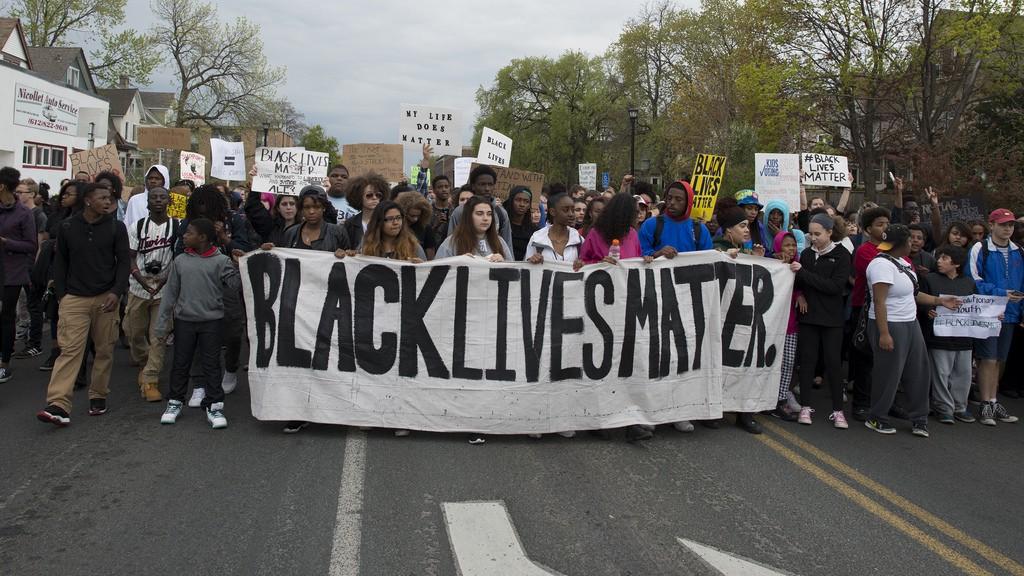Sessions scales back federal reform as police-community relations continue to crumble
In what can be seen as a natural extension of Jeff Sessions’ already-evident disdain for Obama-era criminal justice policies, the Attorney General announced Friday that the Department of Justice would scale back its Office of Community Oriented Policing Services (COPS). The COPS program was known in part for investigating the work of local police departments and issuing reports on […]

In what can be seen as a natural extension of Jeff Sessions’ already-evident disdain for Obama-era criminal justice policies, the Attorney General announced Friday that the Department of Justice would scale back its Office of Community Oriented Policing Services (COPS). The COPS program was known in part for investigating the work of local police departments and issuing reports on problematic practices or broader misconduct. Sessions’ move reflects the Trump administration’s unequivocally pro-police stance, as well as the Attorney General’s clear contempt for federal oversight of local law enforcement.
“The DOJ is basically saying to police departments, ‘You guys are doing a great job, and you’re on your own now,’” former Boston police officer and criminal law professor Tom Nolan told In Justice Today. “Whatever COPS is going to engage in now is going to be a radical departure from what happened under Obama, or even Bush.”
The DOJ’s announcement was vague, promising “technical assistance and support” from the updated version of the COPS Office without specifying what that might mean in practice. It was clear, however, that the program will no longer investigate local police departments and promote reform as it had increasingly done under Obama, and local police administrators will no longer be able to seek reform-based guidance from the DOJ.
“Changes to this program will fulfill my commitment to respect local control and accountability, while still delivering important tailored resources to local law enforcement to fight violent crime,” said Sessions in a statement.
The COPS program was well-received by some of the local departments it engaged with, while other collaborations were less successful. Advocates hailed the Office’s work as a less-intrusive alternative to court-ordered reforms. Darrell Stephens, executive director of the Major Cities Chiefs Association, an alliance of Chiefs and Sheriffs representing the largest cities in the U.S. and Canada, noted by email to In Justice Today that for the Las Vegas Police Department, the “experience [with COPS] was a good one … It was helpful in making significant changes to their training and investigations of officer involved shootings.” Stephens noted that other departments had a less positive experience, specifically citing San Francisco and Milwaukee.
At Chief of Police Edward Flynn’s request, the Milwaukee Police Department began working with the COPS Office in late 2015 following the fatal shooting of Dontre Hamilton by a police officer. A draft report from the Department of Justice delivered to Flynn in mid-2016 was met with frustration with what Flynn called “factual errors,” and his department had since been collaborating with the DOJ to clarify and finalize the report and recommendations so that it could begin implementing reforms.
Notwithstanding those frustrations, in a letter published following Sessions’ announcement, Flynn lamented the scaling back of the COPS program, noting that it would cut short his efforts to work with the DOJ to improve police-community relations and that his department would never receive a finalized draft. Further, the letter seemed to criticize Sessions’ choice to separate the goals of improving police-community relations and combatting violent crime.
“To separate concerns about violence from concerns about police efforts risks making each discussion disingenuous,” wrote Flynn.
The DOJ’s decision to dramatically scale back the work of the COPS Office comes as fractured police-community relations have once again taken center stage in St. Louis, Missouri. On Sunday night, officers in riot gear chanted, “Whose streets? Our streets!” as they boxed in peaceful protesters and arrested roughly 80 people, some of them violently. The arrests included a St. Louis Dispatch reporter who was pepper sprayed in the face after being pinned to the ground.
“We should be concerned about the message that rank and file police officers are receiving — that the Feds are adopting a hands-off attitude pertaining to local law enforcement practices,” says Nolan. “What we saw in St. Louis was a new low.”
